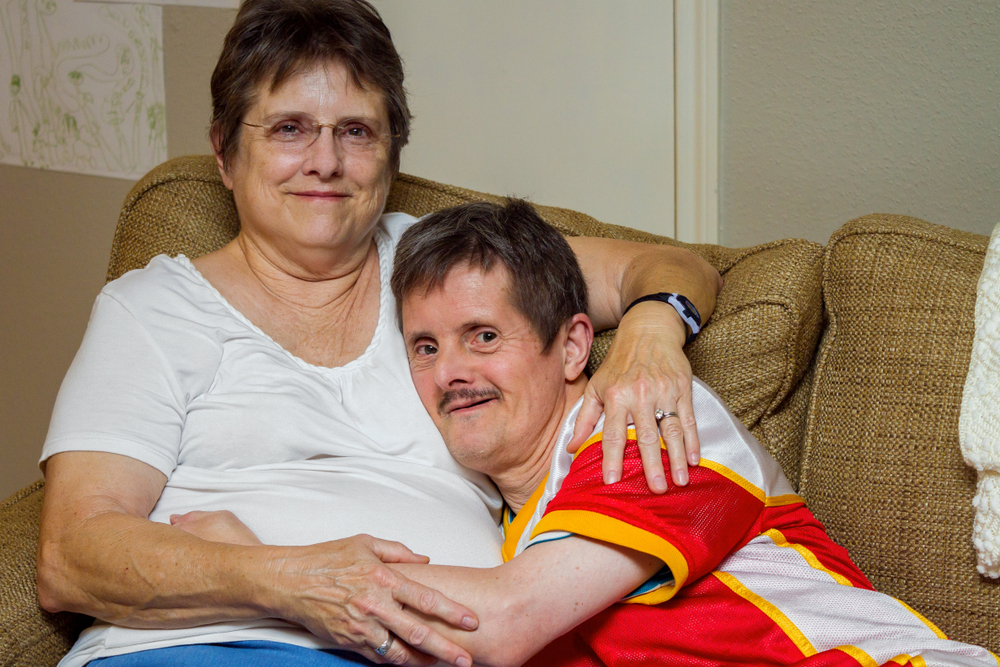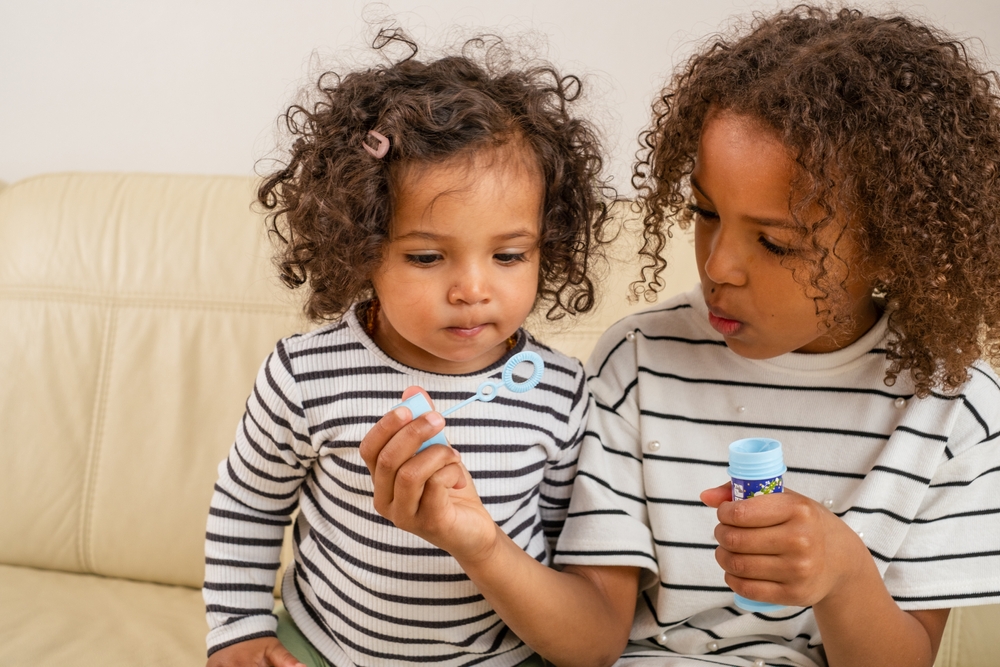National Siblings Day, celebrated each year on April 10th, is a day set aside to honor the unique relationships between siblings. It’s an opportunity to reflect on the bonds of love, friendship, and the deep connections that develop over a lifetime. For families with a sibling who has a disability, this day carries additional significance, offering a chance to acknowledge the distinctive experiences these relationships bring, as well as the mutual support and understanding that flourishes within them.
Understanding the Sibling Dynamic: Navigating Family Challenges
The sibling dynamic within families where one or more members have a disability can be deeply influenced by the practical realities of caregiving, financial pressures, and the distribution of parental attention. These factors can shape the experiences and relationships of all family members, often in complex ways.
The Impact of Caregiving
In many families, the caregiving responsibilities for a sibling with a disability can significantly impact daily routines, family interactions, and long-term planning. Siblings may take on caregiving roles from a young age, contributing to household responsibilities, assisting with the care of their sibling, or even making sacrifices in their own lives to accommodate the family’s needs. While these experiences can foster a deep sense of responsibility and maturity, they may also lead to feelings of pressure or loss of childhood spontaneity. Balancing these responsibilities with their own needs for growth, education, and socialization is a key challenge for siblings.
Financial Stresses and Their Effects
The financial impact of caring for a family member with a disability cannot be understated. The costs associated with medical care, therapy, adaptive equipment, and potentially modified living accommodations can place a significant strain on family finances. This financial pressure can affect the entire family’s lifestyle, opportunities, and stress levels. Siblings might witness the hard choices parents have to make regarding financial priorities, which can lead to feelings of guilt, worry, or resentment. Understanding the financial implications and learning to navigate these challenges is an essential part of the family’s journey.
Navigating Parental Attention
The distribution of parental attention is a delicate aspect of the sibling dynamic in families with a disability. Naturally, parents may need to devote more time, attention, and resources to the care of a child with a disability, which can lead to siblings feeling overlooked or secondary. It’s important for parents and caregivers to communicate openly with all their children, acknowledging the unique needs and contributions of each family member. Creating spaces for individual attention and recognition of each sibling’s achievements and challenges can help mitigate feelings of neglect and promote a more balanced family dynamic.
Building a Supportive Family Environment

Fostering a supportive family environment is crucial for navigating the complexities of the sibling dynamic. This involves:
- Open Communication: Encouraging open and honest discussions about feelings, frustrations, and needs can help siblings feel heard and valued.
- Family Time: Prioritizing family activities that include all members can reinforce the bonds between siblings and create shared memories and experiences.
- Individual Recognition: Celebrating each child’s achievements and acknowledging their unique challenges helps to ensure that all family members feel seen and appreciated.
- External Support: Seeking support from external resources such as family therapy, support groups, and recreational programs for siblings can provide additional coping strategies and a sense of community.
Understanding the sibling dynamic within families where disability is a factor requires a nuanced appreciation of the challenges and opportunities these relationships present. By addressing the caregiving responsibilities, financial stresses, and the distribution of parental attention with sensitivity and support, families can strengthen their bonds and navigate the journey together.
Adult Siblings Transitioning to Caregivers

As parents age or pass away, the responsibility of caring for an adult sibling with a disability often transitions to their adult siblings. This shift can be significant and comes with a unique set of challenges and responsibilities that requires careful planning, emotional adjustment, and ongoing support.
Navigating Legal and Financial Responsibilities
One of the first challenges that adult siblings may face involves legal and financial planning. It’s crucial to ensure that all legal documentation, such as guardianship, trusts, and wills, are in place and reflect the current and future needs of the sibling with a disability. Financial planning is equally important, as managing the costs associated with long-term care, including medical expenses, housing needs, and daily support, requires careful budgeting and resources. Accessing professional advice from legal and financial experts specialized in disability care can provide essential guidance.
Emotional and Practical Adjustments
Taking on the role of a primary caregiver for a sibling can be a significant emotional journey. Adult siblings may experience a range of feelings, from compassion and dedication to overwhelm and anxiety about their new responsibilities. Practically, this transition often requires adjustments to one’s lifestyle, employment, and personal relationships to accommodate the caregiving role. Support from other family members, friends, and community resources can be invaluable during this adjustment period.
Sustaining Personal Health and Well-being
It’s important for sibling caregivers to maintain their own health and well-being. This includes regular medical check-ups, mental health support, and time off from caregiving duties. Balancing caregiving with personal needs can help prevent caregiver burnout and ensure that the sibling relationship remains strong and positive.
Maintaining Family Relationships
Maintaining a healthy relationship with a sibling with a disability involves more than just caregiving; it’s about nurturing the sibling bond. This can be fostered by sharing experiences, reminiscing about shared childhood memories, and continuing to participate in enjoyable activities together. Ensuring that the sibling with a disability remains integrated within the wider family circle is crucial for their social and emotional well-being.
Transitioning to the role of caregiver for an adult sibling with a disability is a profound change that requires compassion, resilience, and support. By planning carefully, seeking appropriate resources, and maintaining their own health, adult siblings can manage this important role effectively while preserving the loving and supportive relationship that has likely spanned their entire lives.
Resources and Communities

Support for families where siblings have disabilities is crucial. A variety of resources and communities exist to assist. Search local, state, federal and online resources for:
- Family Support Groups: Many organizations offer support groups for families, providing a space to share experiences and advice. These groups can be invaluable for siblings seeking understanding and community.
- Educational Workshops and Events: Workshops focused on understanding disabilities, legal rights, and advocacy offer families and siblings tools to navigate their unique challenges effectively.
- Recreational Programs: Programs designed for individuals with disabilities and their families can offer opportunities for fun, relaxation, and building relationships outside of the home environment.
- Professional Caregivers: Employing professional caregivers can provide necessary respite and assist with daily caregiving tasks, reducing the burden on the sibling caregiver.
- Community Resources: Local disability services organizations can offer various supports, including day programs, occupational therapy, and social activities, which can enhance the quality of life for the sibling with a disability.
- The Sibling Support Project: A national program dedicated to the interests of brothers and sisters of people with special health, developmental, and emotional needs.
- The Arc: A community-based organization advocating for and serving people with intellectual and developmental disabilities and their families.
National Siblings Day provides an important moment to recognize the unique relationships between siblings, especially in the context of disability. It’s a time to honor the shared journey, the mutual support, and the deep bonds that are formed. These relationships are a powerful reflection of the diverse ways in which families come together and support one another through life’s journey, highlighting the value of understanding, patience, and unconditional support.
This article contains affiliate links. When you make a purchase through our links, we may earn a commission from Amazon and other retailers, at no cost to you.
- Urbatsch Attorney, Kevin (Author)
- English (Publication Language)
- 336 Pages – 09/26/2023 (Publication Date) – NOLO (Publisher)
- Used Book in Good Condition
- Hardcover Book
- Talley (Author)
- English (Publication Language)
- 236 Pages – 06/28/2012 (Publication Date) – Springer (Publisher)
- Meyer M.Ed., Don (Author)
- English (Publication Language)
- 272 Pages – 11/28/2023 (Publication Date) – Brookes Publishing (Publisher)
Like this article? You may also like:
Mom Starts Self-Defense Nonprofit to Combat Violence Amongst Disabled
Connect with AmeriDisability on Facebook, Twitter and Instagram.
Check out the Resources page. Claim or add your disability-focused business or nonprofit for free.









